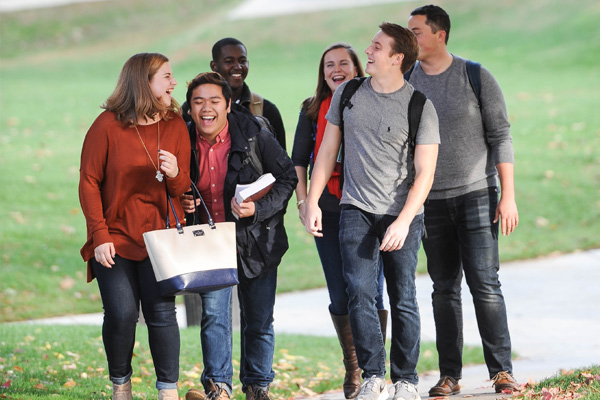Washington, D.C., Catholic University’s home, has several parks, organizations, services, transportation, and programs to help you live a more sustainable life. Here are a few highlights.
Getting Around Town
Bring Your Bike: The University has more than 400 bike racks and runs adjacent to the Metropolitan Branch Trail on John McCormack Road. When complete, the trail will connect Silver Spring, MD to Union Station in Washington, D.C.
Rent a Bike: Capital Bikeshare has over 350 stations across D.C., Virginia, and Maryland. The University has a Capital Bikeshare station at Millennium North and there is a publicly accessible Bikeshare on the University side of the Brookland-CUA Metro Station.
Metrorail is the D.C. metro area’s subway system. The Brookland-CUA Metrorail Station is the closest stop to campus on the Red Line.
Metrobus is the area’s bus system. There are several bus stops on Michigan Avenue, Monroe Street, Taylor Street, and at the Brookland-CUA Station Bus Bay.
Brookland Neighborhood
Catholic University is located in the Brookland neighborhood of Northeast Washington, D.C. The Basilica of the National Shrine of the Immaculate Conception and the Saint John Paul II National Shrine are major highlights in the neighborhood. Add these lesser-known sites to your schedule.
Farmers Markets. Farmer’s markets deliver fresh, local food to shoppers looking for healthy options and looking to support local farmers and food producers.
- Monroe Street Farmers Market: On Saturdays from 9 a.m.–1 p.m., check out the farmers market at the Arts Walk for local, organic produce, specialty food producers, and for special events like yoga and live music.
- Brookland Farmers Market: Check out this market selling sustainably-sourced produce on Tuesdays from 4–7 p.m. at the Brookland-CUA Metro Station at 10th and Otis Streets.
- There are nearly 30 additional farmers marketsacross DC, Maryland, and Virginia.
Community Gardens. Community gardens allow residents to grow their own food, build community, and reduce the impact of food deserts.
- The Catholic University Community Garden located behind Curley Hall provides a space for all community members to garden together and grow produce for Cardinal Cupboard, the on-campus food pantry. All students, staff, and faculty members are welcome at any time!
- The Franciscan Monastery Community Garden located a few blocks from campus on 1400 Quincy St., N.E., Washington, D.C., gives back to the community with volunteers who grow, harvest, and donate as much as 8,000 pounds of fresh produce for food pantries across the city. Catholic University has a volunteer program with the garden that meets on Saturdays from 9 a.m.–12 p.m. Contact Campus Ministry for more information.
Volunteer
Help out your fellow neighbors and green spaces by organizing a park clean-up, spending a few hours maintaining a community garden, or donating healthy and sustainable foods to a food pantry.
- Check out Campus Ministryfor volunteer opportunities in the Brookland neighborhood and around DC.
Experience Nature
The Washington, D.C. area is home to many trails and parks where you can experience nature and wildlife. These quick trips are perfect for hiking, biking, birding, or a picnic.
Rock Creek Park, Washington, D.C. Rock Creek Park covers nearly 2,000 acres and is filled with trails and opportunities to hike, bike, boat, play golf, play tennis, ride horses, attend concerts, and more.
Kingman and Heritage Islands, Washington, D.C. This protected habitat includes tidal freshwater wetlands, wildflower meadows, and tidal swamp forest. You can see more than 100 different species of birds, mammals, and other wildlife.
U.S. National Arboretum, Washington, D.C. The Arboretum covers 446 acres and has rare and indigenous trees, shrubs, flowers, and herbs.
Tidal Basin, Washington, D.C. Be sure to see the cherry blossoms at the Tidal Basin on the National Mall in the spring.
Theodore Roosevelt Island, Washington, D.C. On a small island between Georgetown and Arlington, you can take in a secluded forest with trails, and wildflowers. Try renting a kayak in Georgetown for cardio work.
Great Falls, Virginia. See the area’s largest waterfall just outside of the city. Picnic or hike some of the trails on either the Maryland or Virginia sides.

